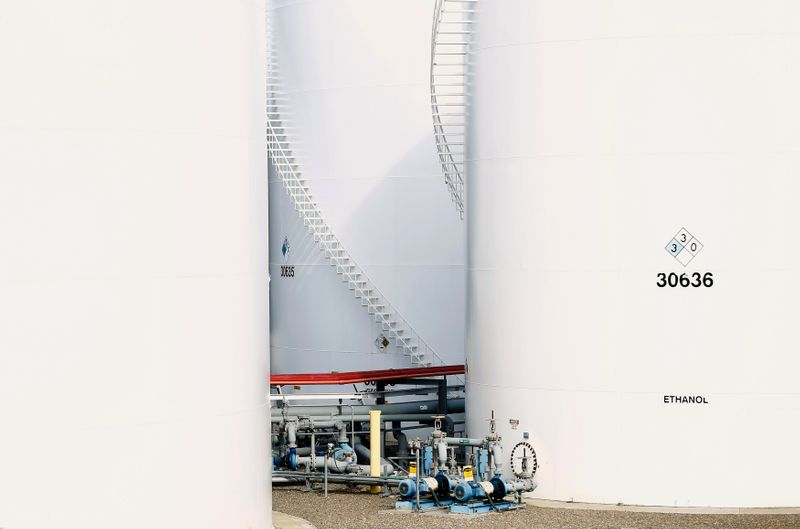By Arathy S Nair and Shradha Singh
(Reuters) - U.S. oil refiners this quarter are expected to spend the most since at least 2018 to meet U.S. biofuels requirements, further pressuring margins hit by the collapse since March in global prices and demand.
Under renewable fuel legislation originally aimed to support corn farmers, refiners have to blend biofuels like ethanol or diesel made from animal fats or vegetable oils, into gasoline and diesel, or buy credits, known as Renewable Identification Numbers (RINs), from those who blend more than they are required to.
The coronavirus crisis has led to less blending activity generally and as a result the issue of fewer compliance credits, reducing the supply of credits available for trading and raising the price of them.
RIN prices had also risen earlier this year after a U.S. court in January ruled the Trump administration must reconsider three waivers it previously handed out to refineries that exempted them from the blending laws.
As of Monday the price of corn-based ethanol fuel credits for 2020 had risen nearly five-fold this year to 43.50 cents each.
"For some refiners, it is one more cost to contend with in a refining environment which is seeing margins under pressure because we have so much excess refining capacity around the world," said Andy Lipow, president of Lipow Oil Associates.
The higher RIN costs, combined with lower margins because of the coronavirus pandemic, have added a sense of urgency to the ongoing debate in Washington, D.C. around the blending requirements. Lawmakers from heavy oil-producing states have called for relief to refiners during the pandemic, citing in part the increased RIN prices.
San Antonio-based Valero Energy Corp (NYSE:VLO) in its post-earnings call raised its estimates for RIN expenses this year by $100 million to between $400 million and $500 million. Last year it spent $318 million.
Another Texas-based refiner, CVR Energy (NYSE:CVI) Inc, also raised its full-year estimates for RIN costs by 43% to about $100 million. It had spent $43 million last year.
Refiners paid about $446 million in the second quarter for these compliance credits, a Reuters review of regulatory filings from five publicly listed refiners that disclose the numbers show.
Graphic: Top refiners' second quarter biofuel bills Top refiners' second quarter biofuel bills https://graphics.reuters.com/USA-BIOFUELS/xlbvgbxqgpq/chart.png
Tudor Pickering Holt and Co analyst Matthew Blair estimates current-quarter RIN costs at $1.39 per barrel for refiners that do not blend, the highest in more than two years and up from $1.18 on average in the second quarter and 52 cents a year ago.
Benjamin Salisbury, director of research at Height Capital Markets, expects prices for an ethanol fuel credit to be in the 50 cent range for the rest of the year if gasoline and diesel prices remain stable.
Asked for his views on RIN prices on a financial results call last week, Thomas Creery, head of refining at Dallas-based HollyFrontier Corp, told analysts:
"That's the million-dollar question. They're probably over(priced) right now. We think that they should be ... trending lower through next year. A lot of it is going to have to come down to what's going to happen with small refinery exemptions."
Graphic: U.S. refiners' biofuel bills soar in Q2 2020 U.S. refiners' biofuel bills soar in Q2 2020 https://graphics.reuters.com/USA-BIOFUELS/oakpemldbpr/chart.png
